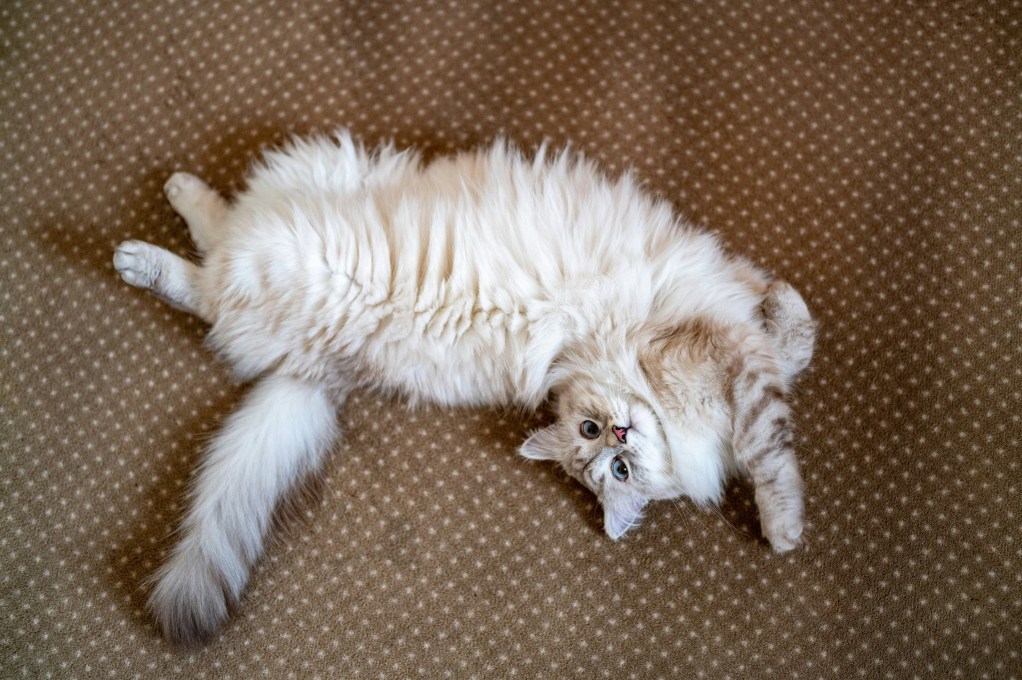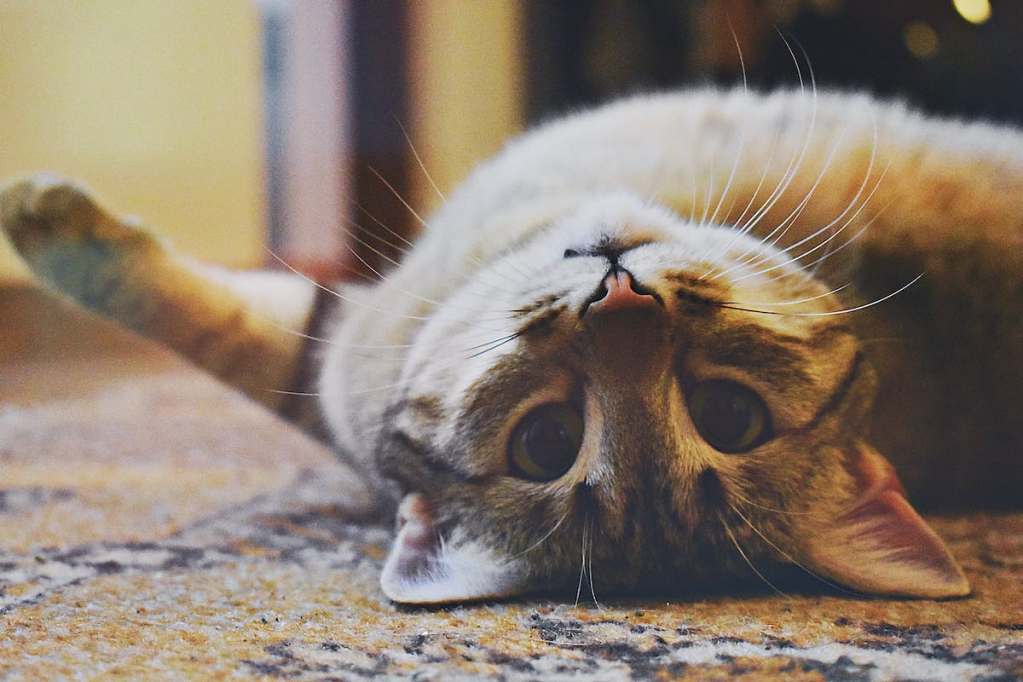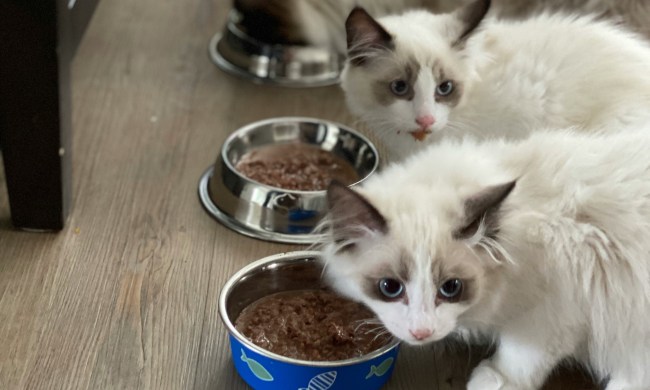
Cats are famous for their chaotic personalities and unpredictable behaviors, but one of the most random things they can do is roll around on the floor. Most of the time, it seems to come out of nowhere. It’s one thing to watch a sleepy feline lie down for a catnap in the sun, but it’s another thing entirely when they flop over with all of their might.
While there’s no doubt that it’s entertaining to watch, not all cat owners or admirers know what’s behind this silly-looking behavior. Why do cats roll around? Even though it may look like they’re scratching themselves on the ground or asking for belly rubs like a dog, there are several real explanations ranging from obvious to subtle. At least now you’ll know.
Why do cats roll around?

You may think it’s easy to identify why a cat is rolling around, but it may take a watchful eye and some extra clues before you figure it out. Hopefully, these explanations help you learn what to keep an eye out for.
Your cat has mated or is in heat
If you have an unspayed female cat, you might notice her rolling around more frequently than other cats. Odds are, this has to do with hormones. Veterinarian Dr. Candy Akers explains that female cats are known to roll around after mating, potentially as a method to help sperm quickly reach the egg.
“Fueled by hormones and ovulation,” she continued, “this type of rolling around is erratic and vigorous and is often accompanied by loud vocalizations, spraying, and increased demands for affection/attention.” This may occur even if she hasn’t mated this heat cycle, but it’s perfectly natural.
They’re leaving their scent
It’s no secret that cats and dogs both like to leave their scents wherever they go. Dogs frequently mark by urinating or rubbing the scent glands in their skin on their target, and it should come as no surprise that cats do the same thing. By rubbing the scent glands on the floor, cats release pheromones to let other cats know that this spot is theirs.
Your cat is acting submissive
Dr. Akers also explains that lying on the ground and rolling onto their back can be a cat’s way of showing submissiveness to other felines. This is most often observed in younger male cats while interacting with older cats.
They’re having fun or want to play
If you think your cat looks adorable and playful while rolling around on their back, you may be onto something. Many cats roll around while playing, while bored, or while asking you to play. The texture of the ground can feel fascinating on their skin, explains Dr. Akers, and it can give them an opportunity to stretch and take in their surroundings.
Just as your cat pounces and crawls while “hunting” their favorite toy, they may also roll around in bliss after catching it. After all, cats play with their food in the wild, so it’s totally normal for them to do so at home or in play.
They’re cooling off on a hot day
Sometimes, rolling around can be your cat’s attempt at staying cool. On hot days, you may see them rolling in the dirt or the cool grass or on a cold tile floor, though they may also simply lie there to enjoy the lower temperatures.
When rolling around might indicate a problem

However, not all rolling is a good thing. Even though it’s a harmless and even meaningless action, most of the time, there are other times when it can indicate a problem.
Your cat might be itchy
Sudden rolling around can be a symptom of itchiness or discomfort, especially if you notice them rubbing one particular part of their body over and over again. Dr. Akers recommends keeping an eye out for skin irritation and irregularities in the fur, though some problems like lice, fleas, and ticks may require closer inspection.
Rolling can be a sign of pain or discomfort
If you rule out skin concerns like allergies and irritation, you might want to consider whether your cat is telling you they’re in pain. Anything from invisible skin discomfort to stomach pain could cause a cat to roll around in an attempt to soothe themselves, but Dr. Akers suggests keeping an eye out for other symptoms of pain or discomfort.
Why do cats roll around after having catnip?

If your feline has been exposed to catnip, it makes sense why they’d have a number of exuberant reactions. Rolling around is just one way cats like to enjoy their catnip, so feel free to laugh and enjoy the moment with them.
Are some cat breeds more likely to roll around?

While a cat’s breed doesn’t determine everything about them, it may actually relate to how frequently they roll on the ground. Dr. Akers explains that certain cat breeds — like Scottish Folds and Ragdoll cats — are instinctually more comfortable and vulnerable around people. A cat must feel safe and comfortable to show their belly and roll on the ground, after all, and a greater level of comfort means a greater likelihood of rolling.
As precious as it is when a cat rolls on their back, please don’t mistake it as asking for belly rubs! Every cat is different, but the vast majority of felines get frightened when someone — even the cat’s owner- – reaches for their tummy. That’s just feline instinct, too.



